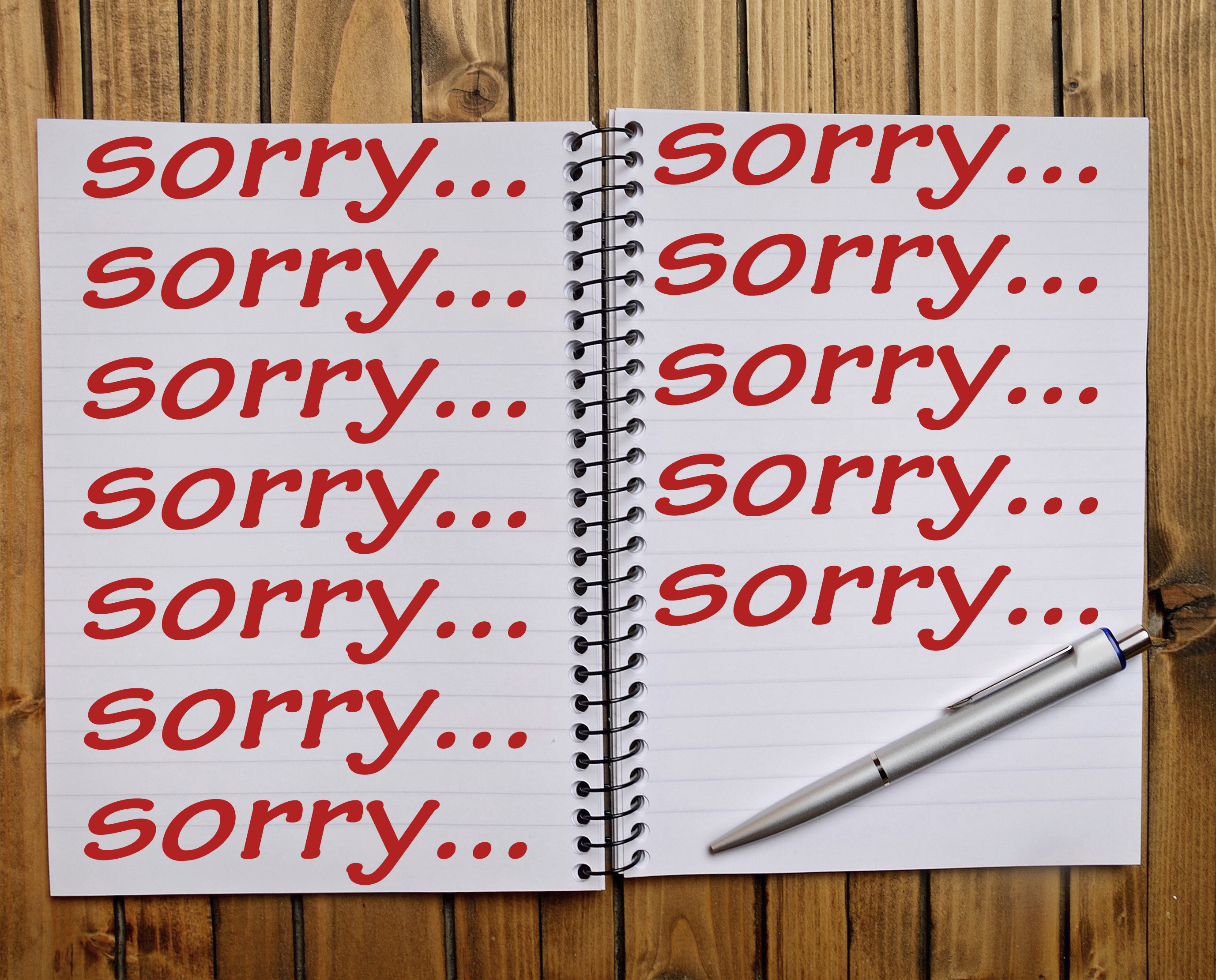 I’m sorry, I’m buried under a pile of articles discussing whether or not women should remove the phrase “I’m sorry” from their lexicon. I meant to have a definitive answer on whether to say or not say these two words. Instead (I’m sorry to say) I’m juggling my personal dislike of the overuse of the phrase along with the opinions cleverly stated in many media outlets.
I’m sorry, I’m buried under a pile of articles discussing whether or not women should remove the phrase “I’m sorry” from their lexicon. I meant to have a definitive answer on whether to say or not say these two words. Instead (I’m sorry to say) I’m juggling my personal dislike of the overuse of the phrase along with the opinions cleverly stated in many media outlets.
Serial entrepreneur Emma Sinclair recommends that women use the Just Not Sorry Google Chrome plug-in for Gmail and make it their resolution for 2016. This app created by Cyrus Innovation underlines “I’m sorry” and other words “that undermine your message” in the emails you compose. Cyrus CEO Tami Reiss created an entire website to meet a goal of having 10,000 women “publicize their desire to change” at justnotsorry.com. And, you know, download the company’s app.
Meanwhile, writers last year started dueling over whether or not women need to erase this phrase from their dialect in an aim to say what they really mean and not sound so apologetic. In a New York Times article posted in June, Sloane Crosley talks about the tone that I (a former Midwestern) heard hidden in most of these apologies tossed at me during an otherwise perfect childhood. (Sorry not sorry, I’m being a bit passive aggressive.)
 “When a woman opens her window at 3 a.m. on a weeknight and shouts to her neighbor, ‘I’m sorry, but can you turn the music down?’ the “sorry” is not an attempt at unobtrusiveness,” writes Crosley. “It’s not even good manners. It’s a poor translation for a string of expletives.”
“When a woman opens her window at 3 a.m. on a weeknight and shouts to her neighbor, ‘I’m sorry, but can you turn the music down?’ the “sorry” is not an attempt at unobtrusiveness,” writes Crosley. “It’s not even good manners. It’s a poor translation for a string of expletives.”
Ann Friedman disagrees with Crosley in her July article for The Cut, a New York Magazine website that “explores a modern woman’s world.” She says men also apologize, but no one’s giving them a hard time for it. She quotes feminist linguist Robin Lakoff, a founder of the field of study of language and gender. “This stuff is just one more way of telling powerful women to shut up you bitch,” says Lakoff. “It makes women self-conscious and makes women feel incompetent and unable to figure out the right way to talk.”
Whoa, what’s a feminist mother to do? Do I pledge at “Just Not Sorry” and proudly tell my tween and teen all about my 2016 resolution to not speak “I’m sorry” unless it’s completely appropriate? And when is it completely appropriate?
I’m sorry, I meant to pack you a spoon for your grapefruit in your lunch
or
I forgot to pack a spoon for you. What was your creative solution to the problem? And pack your own lunch tomorrow and see if you remember a spoon!
I do know that the number of times my daughters say “I’m sorry” after we’ve had a disagreement really bugs me. Maybe because they are copying me. I’m a good girl and I really, really don’t want anyone mad at me. Like me, love me, please, please don’t hate me.
I’m no expert, so I ask Deborah Tannen, a linguist and author of several books about how the language of everyday conversation affects relationships, her opinion on the recent I’m sorry banter, including what to model for children of either gender.
“Yes it is maddening that women’s speech is being corrected. My advice about all forms of language is to become observers of our own speech. There are times, especially at work, where women might do well to say sorry less. And there are time, both at work and at home, where both women and men would do well to say it more,” says Tannen, who recently spoke about this topic for the Take Two radio show.
“My advice is the same for kids: Be aware of how you’re speaking and the effect it has. If your daughters stop saying sorry, their friends might react negatively. Everyone is better off if we are aware of the context, and talk the way that is best for each context.”
Finally I’m saved from the pile of I’m sorry articles as I remember this idea: Listen before you speak. And that is easier said than done.











